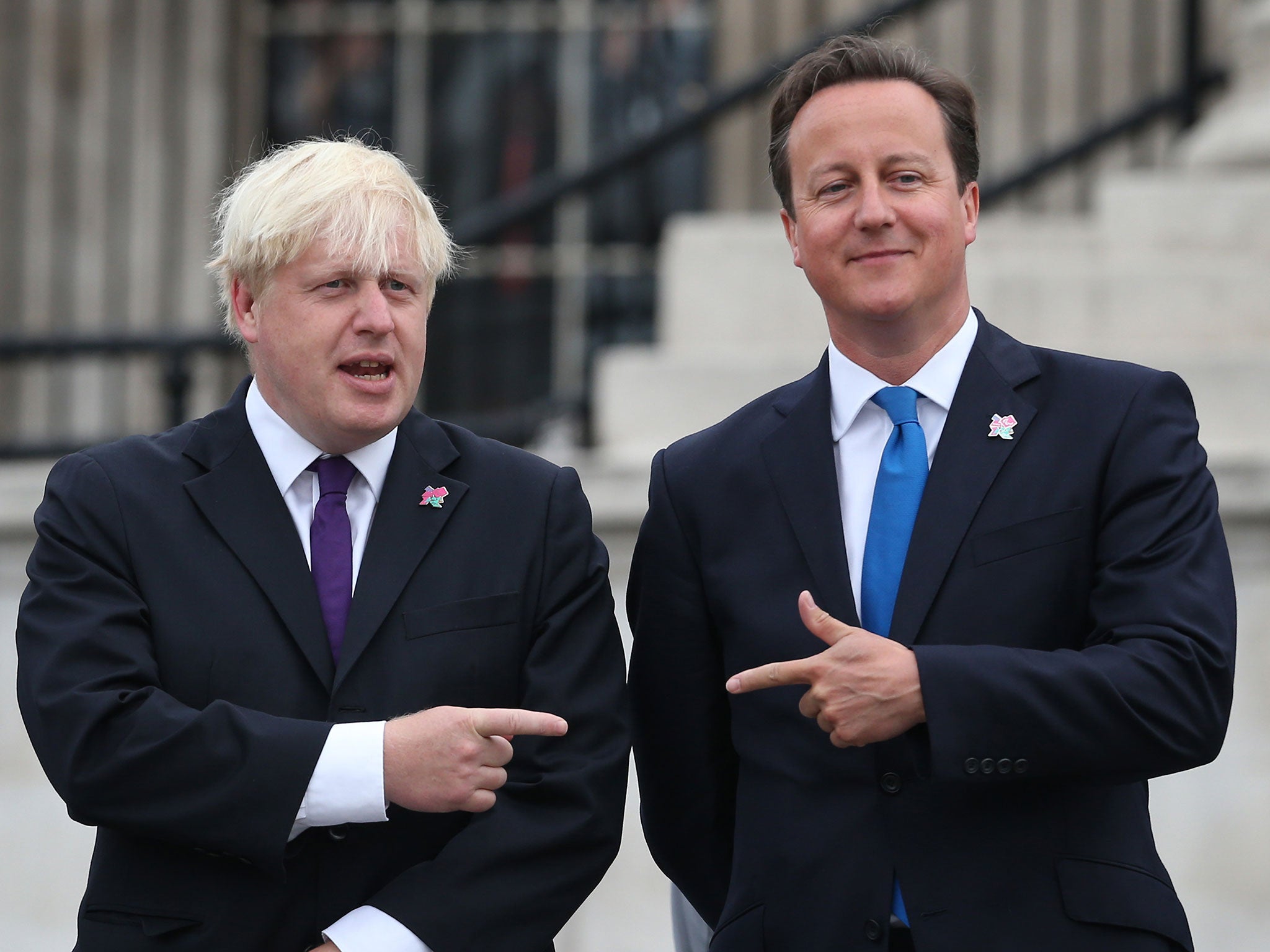The EU referendum debate is still dominated by middle-aged, white men – and that must change
The media has focused almost entirely on the 'big beasts' debating European politics over their brandy and cigars, leaving female politicians to fight over such important matters as who is going to cook the chicken tikka masala


Your support helps us to tell the story
From reproductive rights to climate change to Big Tech, The Independent is on the ground when the story is developing. Whether it's investigating the financials of Elon Musk's pro-Trump PAC or producing our latest documentary, 'The A Word', which shines a light on the American women fighting for reproductive rights, we know how important it is to parse out the facts from the messaging.
At such a critical moment in US history, we need reporters on the ground. Your donation allows us to keep sending journalists to speak to both sides of the story.
The Independent is trusted by Americans across the entire political spectrum. And unlike many other quality news outlets, we choose not to lock Americans out of our reporting and analysis with paywalls. We believe quality journalism should be available to everyone, paid for by those who can afford it.
Your support makes all the difference.The EU referendum campaign is flipping the lid on our messed up political discourse, dominated on both sides by combatants who do not reflect the society we live in.
As Baroness Shirley Williams commented: "The EU debate has turned into a conversation between two white middle-aged gentlemen on one side and two white middle-aged gentlemen on the other. It is a very private debate.”
The shortage of more representative voices in the European referendum debate is symptomatic of their more general absence in public life, but it doesn’t explain why it has taken until now for it to be raised as an issue of concern. It is, perhaps, not unrelated to the remarkable coincidence that the newspapers with the biggest circulation in the UK and the most popular TV current affairs shows are all edited by men.
While it is true that some prominent women, such as Christine Lagarde, have had some input to the debate, but such figures are often speaking from outside the campaign looking in. When it comes to participants, the media has focused almost entirely on the 'big beasts' discussing weighty issues over their brandy and cigars, leaving female politicians such as Priti Patel to fight over such important matters as who is going to cook chicken tikka masala for the nation's curry houses.
It has got to the stage where the lack of alternative voices has become impossible to hide, leading to Harriet Harman complaining to Ofcom.
It’s not as though there aren’t women out there competent enough to speak authoritatively on the subject but if you want to get your voice heard it helps if you are loud, brash, willing to trade insults and make frequent references to World War Two.
At a recent 'women in politics' event that I attended, a fellow panellist revealed to me that a former cabinet minister refused to appear on Newsnight to discuss subjects such as the Syrian conflict because she felt as though she didn’t know enough. She didn’t feel confident enough to discuss these issues, though a willingness to comment without competence apparently rarely holds male politicians back from sharing their perspective. Penny Mordaunt, for example, was attacked after her appearance on the Andrew Marr Show for "plain and simple lying" about the EU membership veto, yet where Boris Johnson has been hazy about the details during the EU debate, it is met with comments such as “well, that’s just Boris.”
Confidence and competence are not the same thing, but research on leadership published in 2013 in the Harvard Business Review noted we commonly misinterpret displays of confidence as a sign of competence. This could go some way to explain why there is regularly a gender imbalance in political debates.
Then we have the marginalisation of the young to contend with.
“Young people have the most to gain by remaining in Europe," said David Cameron in a speech to students in April – but just how effective is a get out the vote message to the 18-25s delivered by someone approaching 50?
There seems to have been a recognition of this problem now that the vote is less than a month away. I was, therefore, encouraged when I spotted June Sarpong speaking for the Stronger In campaign on Sunday, but at the age of 38 it was a little too close to being given a lecture by mum. In a similarly panicked committee decision of “how can we appeal to the youth vote," the comedian Eddie Izzard, 54, is now being wheeled out to speak to students about the referendum – despite being some 30 years older than those he is trying to connect with.
In fact, the best contribution to engaging the young has not unsurprisingly come from someone a little closer in age to them. Lily Allen, a guest on ITV's Peston on Sunday, said: "I don’t think young people are not interested in politics… house prices going up or down doesn’t really affect young people as they can’t really afford houses. I’d rather the PM talked about the abolition of data roaming charges… young people like using their phones on holiday. Maybe people need to start voting with their mobile phone. Maybe it’s about voting reform.”
Hardly rocket science – but you weren’t likely to hear that from the mouth of Michael Heseltine.
Complaining that young people and women are not engaging in our dysfunctional political discourse isn’t going to make them engage. It’s not just that women and young people are not effectively involved, it’s that they are not being effectively represented in our political system and that requires changes in the way the media and politicians interact with them.
You can’t expect self-serving politicians to want to change the status quo, but the media is playing a dangerous game by turning off their future readers from politics and marginalising half the population. Ignoring the voices of women and the young because you think two bald men fighting over a comb sells more newspapers or makes better television does our democracy a disservice.
It’s not too late to hear a wider range of views from women and young voters before June 23. Let’s see if journalists and politicians are willing to take up the challenge.
Join our commenting forum
Join thought-provoking conversations, follow other Independent readers and see their replies
Comments